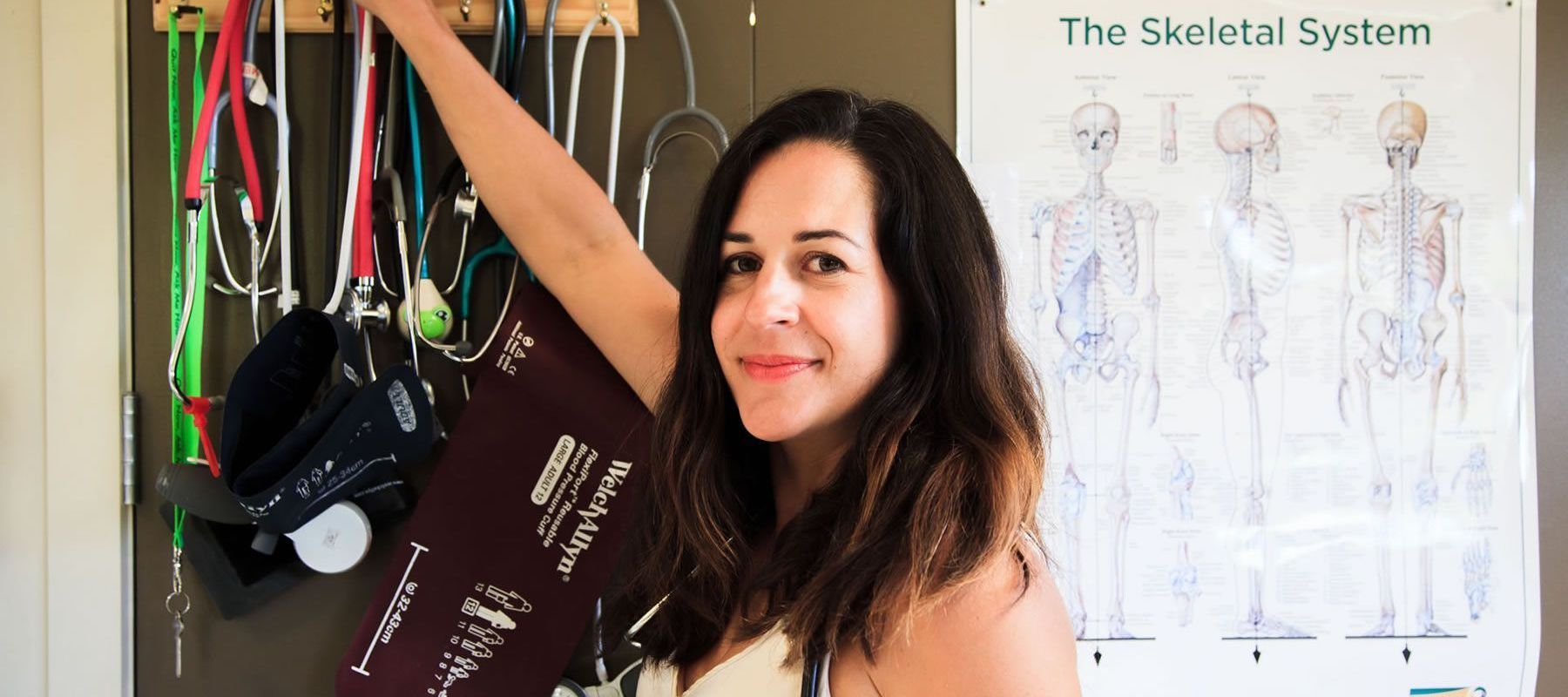FLU Vaccine
The World Health Organisation (WHO) recommendations for the 2019 southern hemisphere influenza season are as follows:
- An A/Michigan/45/2015 (H1N1)pdm09-like virus;
- An A/Singapore/INFIMH-16-0019/2016 (H3N2)-like virus; and (NEW)
- A B/Phuket/3073/2013-like virus (NEW)
- A B/Brisbane/60/2008-like virus
The Ministry of Health is funding the 4-strain (quadrivalent) flu vaccination this year

Do you qualify for a free flu vaccination?
Don't take the risk! Call us on 07 5422450 to arrange a FREE immunisation if you are in any of the following groups:
are pregnant
regularly use an asthma preventer
have diabetes
have heart disease
have kidney problems
have cancer
have a serious medical condition
are aged 65 years or over
a child aged 4 years and under who has been hospitalised for a respiratory illness, or has a history of significant respiratory illness
If you have another ongoing serious medical condition you may also be eligible for a FREE influenza immunisation
If you do not have one of these eligible conditions, you still benefit from an influenza immunisation available, at a small cost.
The Flu in Pregnancy

Influenza immunisation of pregnant women is recommended by the World Health Organization
Because of the higher risk of influenza infection to mother and baby, the World Health Organization (WHO) recommends that pregnant women should be the highest priority in seasonal influenza vaccination programmes.
Immunising a pregnant woman offers protection both to the mother, the unborn baby and to the newborn baby. And it is free for you.
Influenza immunisation could save you and your pregnancy
If you are pregnant it is important to protect yourself and your unborn baby from influenza.
Experience from previous influenza outbreaks shows that pregnant women, their unborn babies and their new infants are at greater risk from complications associated with influenza.
There are a range of changes that occur during pregnancy that put expectant mothers at greater risk, including changes to lung capacity, the immune system and heart rate response.
Pregnant women with existing medical conditions are at even greater risk of severe influenza-related illness.
Healthy, pregnant women with influenza are up to 18 times more likely to be admitted to hospital than women who are not pregnant.
Proven safety record for pregnant women
The influenza vaccine has been used for many years for pregnant women with no safety concerns and can be given during any trimester of pregnancy. There is no increased risk of reactions to the vaccine for pregnant women or their unborn babies.
Immunisation during pregnancy also protects babies after they are born
Newborns and young infants have higher rates of influenza and hospitalisation than other children but are too young to respond effectively to influenza immunisation. However, if you have been immunised in pregnancy you are likely to pass on some protection to your newborn baby (in part by passing antibodies across the placenta).
This can give some protection for your baby and reduce their risk of catching influenza in their first few months of life.
Studies have shown that babies born to mothers who received the influenza vaccine while pregnant are less likely to be hospitalised with influenza than babies whose mothers did not receive the vaccine.*
The influenza vaccine will not harm your baby
The influenza vaccine does not actually cross the placenta into your baby. The vaccine simply stimulates your own immune system to make antibodies that can fight off the virus. Research has shown that the immunisation of pregnant women reduces the risk of influenza not only in the mother but also in their newborn baby.
Maternal influenza immunisation protects two high-risk groups with one vaccine dose – pregnant mothers and their babies.
Some Frequently Asked Questions
When is the best time to immunise?
The influenza vaccine can be given at any time during pregnancy. It is preferable to give the vaccine as soon as the vaccine is available (usually from early March) well before the start of the influenza season. The funded vaccine is available throught to 31 July.
How many doses do I need?
Just one dose of influenza vaccine is required each year.
I’ve had a history of miscarriage. Is it OK to receive the vaccine?
Yes. The influenza vaccine does not increase the risk of miscarriage. However, influenza infection does.
I am pregnant and want the influenza vaccine but I have a cold, should I still get it?
If you don’t have a high fever and are only experiencing a cold, runny nose or sniffles, it’s okay to receive the vaccine. However, if you’re very unwell, wait until you are better. If in doubt, check with your Lead Maternity Carer or doctor.
I have just had my baby, can I have the influenza vaccine and will it protect my baby if I am breastfeeding?
Yes, it is safe for you to have the influenza vaccine. Breastfeeding may also offer some initial protection to your baby.
Is the influenza vaccine a live vaccine?
No. The seasonal influenza vaccine does not contain any live virus; it is completely inactivated and cannot give you influenza.
Is there thiomersal (mercury) preservative in the influenza vaccine?
No. Vaccines used in New Zealand are preservative free.
I had the influenza vaccine last year, why do I need it this year?
Yearly immunisation is recommended for two reasons: first, because protection lessens over time: and second, because each year influenza can be caused by different influenza viruses. The strains in the vaccine are frequently changed to respond to the changing virus pattern.
I am pregnant and work with children, should I have the influenza vaccine?
Yes. Influenza infection rates are generally highest in children, and they are a major source of the spread of influenza. The influenza virus may be found in respiratory secretions (breathing, coughing and sneezing) for two weeks or longer in children. In particular, young infants are at high risk of influenza so it is important to immunise those around them to stop the spread of influenza to them.
Who is NISG?
NISG (National Influenza Specialist Group) is part of the Immunisation Advisory Centre (IMAC) and manages the National Annual Influenza Awareness Campaign. NISG is a not-for-profit group of expert Kiwi doctors and nurses, whose aim is to promote the benefits of immunisation for those most in need.
* Benowitz I. et al, Influenza Vaccine for Mothers Protects Infants, CID 2010:51, 1355-1361.
Questions: General
What is influenza?
Influenza (or ‘the flu’) is caused by three types of influenza virus – A, B and C that infect the respiratory system. Influenza is contagious and is spread by coughing, sneezing and direct contact with an infected person or by touching a contaminated surface.
Although people with underlying health conditions are most at risk from influenza associated complications, previously healthy people can still become seriously ill and even die.
Influenza continues to be a major threat to public health worldwide because of its ability to spread rapidly through populations. Anyone over the age of 6 months of age can be immunised against influenza. The vaccine is fully funded by PHARMAC for certain groups of people who are considered to be at higher risk of severe outcomes.
Can the influenza vaccine give you influenza ( the flu ) ?
No. You cannot get influenza from the vaccine, as it does not contain any live viruses. However, some people will experience mild side effects such as muscle aches or headaches for a short time after immunisation. This is a normal reaction.
Can the vaccination be given to children?
Yes. The vaccination is approved for children 6 months and over and is especially recommended if they have ongoing medical condition such as being on a preventive medication for asthma. Check with your doctor or nurse for details.
How safe is the vaccine?
The vaccine cannot give you influenza as it only contains fragments of the virus. The vaccine stimulates the immune system to make antibodies that protect against circulating viruses. Most people have no reaction to the vaccine. Occasionally the site where the vaccination was given is red or sore for a day or two. Some people may feel unwell for a day or two. These are normal responses to the immunisation.


